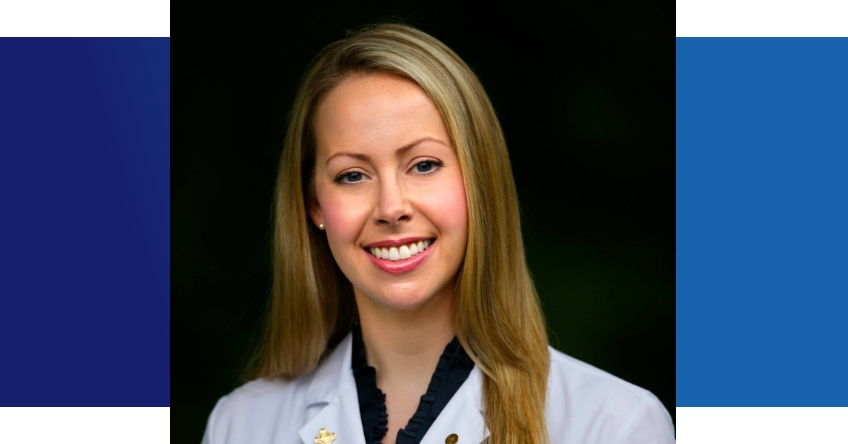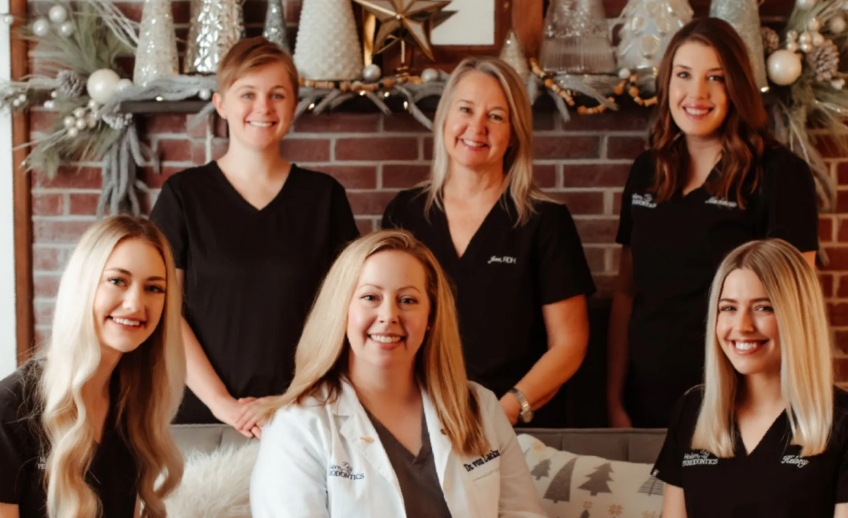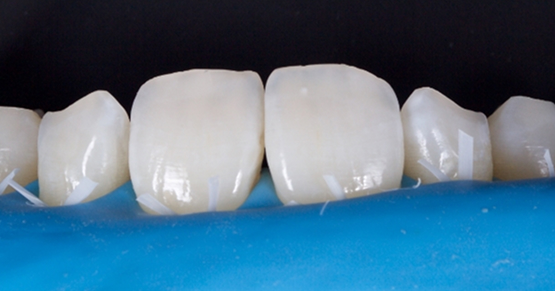Spear Member Highlight: Dr. Kate von Lackum

Independence, integrity, and a commitment to honest, productive relationships.
These watchwords have been the basis of a philosophy that has defined the career of Dr. Kate von Lackum, a periodontist in Lexington, Kentucky, and a longtime Spear member. It’s a philosophy that has underscored her uncompromising approach to patient care, her devotion to ongoing clinical education, and her commitment to partnering in a high-level way with her referring colleagues. It’s a philosophy that she has had from the beginning.
“I started from scratch,” she says. “I didn’t buy a practice — I just started one up with my own vision. I just felt confident about the way I wanted to practice, the way I wanted to treat people.”
How did she choose this career path in the first place? Not surprisingly, she arrived at the decision independently.
“I was actually a scientist first. I don’t have any dentists in my family. I found dentistry on my own because of my interest in biology, and I fell in love with the patient-doctor relationship. For me, dentistry is about having healthy and clear relationships.”
And that commitment to healthy relationships extends beyond patients, as Dr. von Lackum has become a respected leader of a successful Spear Study Club, where she works closely with many of her top referring doctors — learning best clinical practices for interdisciplinary care, getting aligned on treatment options, comparing notes on practice management and team leadership strategies, and just building the kind of collaborative professional relationships that lead to sustained mutual growth. Again, it was something she discovered early on, during her residency, and once she started her practice, she seized the opportunity.
“There were several doctors and periodontists who said Spear Study Club leadership was a really great opportunity to get to know dentists in the area and for them to get to know me,” Dr. von Lackum recalls. “Which was important, especially if you wanted to start your own practice. And two of my dentist friends said to me, ‘If you start a study club, I want be in it.’”
So, she did. Leading the club helped get her fledging practice on solid footing, supported by a strong group of like-minded referrers. And the study club has gone on to be a valuable and enduring part of her success.
Getting Patients to See the Value
For Dr. von Lackum, it all begins and ends with the patient.
“My philosophy is to welcome people into our practice and let them know that we’re here for them at every turn,” she says. “I treat every patient the same. I welcome them, let them know that I partner with their general dentists, that we’re a team. We’ll work together, we will collaborate, we will communicate. And then I do a full diagnosis and give the patient a tour of their mouth with photographs. Every patient, every time, gets a tour of their mouth. And we talk about what we see and let the patient ask questions.
One thing she doesn’t do is let insurance considerations influence her diagnosis.
“I tell them fully everything that I see. Not once do I say, ‘Oh, insurance won’t let us do that.’” This is something that was important to her from the beginning — not being beholden to quotas or letting insurance dictate how she practiced. “That was a great part of my journey with Spear,” she remembers. “When I first opened my practice, I was in participation with a lot of insurance companies, and I knew that I wanted to get out of that because they would tie my hands.”
Of course, that leads to the inevitable question of how to handle patients’ concerns about fees. “They’ll say, ‘Okay, doctor, it sounds great, but how much is this going to cost?’ And I’ll say, ‘I truly don’t know, it’s different for every person, but let me have the best person in my practice answer that, and that’s my Treatment Coordinator. In fact, she’s working on a plan for you right now.’ By getting out of the way and not even discussing finances with patients, it really frees me to be as ethical and as science-based as I can. Because when I remove myself from the money conversation, I’m letting them know it’s worth every cent.”
Dr. von Lackum also recognized early on that getting patients to agree to treatment — especially treatment that insurance wouldn’t necessarily cover — meant sharpening her skills in specific areas. One experience that she says made a huge difference was attending the Art of Treatment Planning workshop. It’s a comprehensive three-day workshop that covers topics such as taking clinical photos, and performing a comprehensive exam. “But it was the last day that I found truly transformative,” she says. “That’s when they went through example case presentations, talking to us as if we were the patient.”
The insights she applied from that workshop changed the way she practiced.
“It was all about finding some different language for how to talk to people and really distilling down, what does the patient want? Do they want what’s cheap and what’s just maybe going to last for a year? Or do they want quality work with an expert clinician who’s going to work with other doctors, so they get the best care possible, and that they’re safe and comfortable? It’s just a different way of valuing what we do and communicating that to patients. In that workshop they teach you how to accept if the patient’s not valuing it — that maybe it’s not a “no,” it just a “not yet” because they’re not ready. Maybe it’s not a “no” forever, because you planted that seed. I had already at that point seen evidence supporting that approach in my practice and the workshop validated that. I had been planting seeds with patients. Often, the road to acceptance is a process.”

How Team Alignment Leads to a Better Life in and out of the Practice
Another significant component in Dr. von Lackum’s success has been the way she has emphasized a team approach to implementing strategies. It’s an approach she likes to reinforce when talking with colleagues in her study club.
“We’ll often joke and commiserate about pain points and someone will say something like, ‘Oh, it was a terrible day today,’” says Dr. von Lackum. “And when I hear them describe the problem, I’ll often say, ‘Hmm, lack of professional expectations from your team — that’s what led you to have a bad day.’”
To her, the question of team alignment boils down to one simple philosophy. “If we’re going to have systems in the practice, every single patient gets treated the same way.” Otherwise, she says, “If you let those systems slip, that can lead to compromised patient care and really bad days.”
This is a driving principle that Dr. von Lackum has learned through experience. “For me, the pain points have always come when team members didn’t understand how important it was to do something. They didn’t understand the rationale and the why. And the more I educate and share with my team, the less pain points I feel. And you just see that the further you go in practice. You’re like, ‘Oh, I should take ownership of teaching the people who work with me why we do it this way, so that we don’t run into this same problem again and again.'”
In the end, this commitment to uncompromising team alignment has ultimately made life easier for Dr. von Lackum — inside and outside the practice.
“Every year that I continue with Spear, I get clearer and clearer about what I will and won’t accept in our daily patterns at work,” she says. “And my team knows that those systems are there for a reason —that they create better workdays, better workflow. And the better my workday goes, the more I can go home and enjoy my family life and not take work home with me.”
SPEAR STUDY CLUB
Join a Club and Unite with
Like-Minded Peers
In virtual meetings or in-person, Study Club encourages collaboration on exclusive, real-world cases supported by curriculum from the industry leader in dental CE. Find the club closest to you today!

By: Dan Weber
Date: January 14, 2022
Featured Digest articles
Insights and advice from Spear Faculty and industry experts


